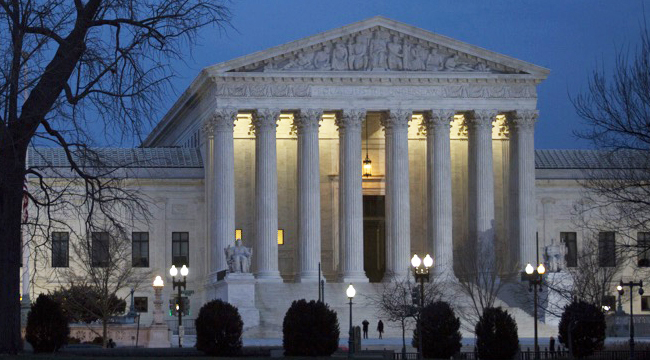
The Supreme Court has refused to hear challenges to the constitutionality of assault weapons bans in New York and Connecticut.
Both cases were challenging laws passed in the two states in the wake of the Sandy Hook Elementary School shooting that left 20 students and six faculty members dead. The Connecticut law banned over 100 types of firearms and made magazines that could hold more than 10 rounds illegal in the state. The New York law banned any further sale of assault weapons and high-capacity magazines while also creating a registry of existing assault weapons in the state. SCOTUS declined to hear both and offered no comment on their reasoning.
The decision to not hear the cases means lower court rulings that allowed the law to stand will remain in place. Connecticut’s Attorney General George Jepsen, in court paper’s arguing for the legality of the ban, said that the law was aimed at “firearms that are owned by a small percentage of gun owners and are disproportionately used in…the most heinous forms of gun violence.”
The move by the Supreme Court isn’t particularly surprising given their reaction to similar cases since the 5-4 decision in 2008’s District of Columbia v. Heller established the right to own a firearm for home defense. Since that time, the court has largely taken a hands-off approach to gun laws passed at the state level. Just last year, they declined to consider a similar weapons ban in the Chicago suburb of Highland Park, though that decision came with dissents from Justices Antonin Scalia and Clarence Thomas. That decision came days after the San Bernardino shooting, much as this one does the worst mass shooting in modern U.S. history.
Assault weapons were banned nationwide from 1994 to 2004. However, attempts to reinstate that ban have been unsuccessful. Currently, seven states have passed their own bans on assault weapons: California, Maryland, New York, New Jersey, Massachusetts, Connecticut, Maryland and Hawaii.
(Via USA Today)
